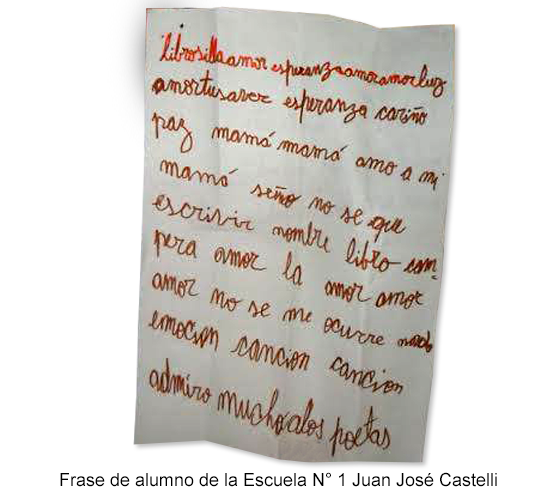With the experiences in Vienna, Medellín, and La Habana as predecessors and cornerstones, the International School of Poetry is born. In its eighth edition it will be held within the frame of the XIV FIP International Poetry Festival of Buenos Aires. This gathering will take place from Thursday, June 20th to Sunday 23rd, this year.
The aim of the School is to delve into the poetic experience from different viewpoints in order to try to answer some deceptively simple questions: what is poetry? What to do with a book of poems? Where does a poem come from? What is poetry for? What does the poem do to us?
Through unofficial schooling activities carried out by some of our visiting writers, we will show the creative possibilities of words, encouraging participants to reflect on the questions posed above so that the access door to poetry, closed to many, may open generous.
Our goal is to get new, young readers and to learn new ways to express poetry collectively through fun proposals, using our bodies, our voices, song, among others.
Poetry is not only that written by poets, it is a poetic perception that anybody may have which enriches them as it widens their universe.
It is commonplace to believe that the chosen ones, those “well-read”, may access it. What if poetry were everywhere, waiting to get noticed to be revealed?
Many, in their everyday lives, avoid approaching a book of poems because poetry has a certain demand and may as well intimidate as it makes so many things bare. But it is for those working in libraries, teachers, professors, those who want to share reading with others, for the parent sitting at night to read to their children as they go to sleep, for them who want to hear the music of the world in the shell where it resonates (which is the poem, according to Octavio Paz), it is for them and for everybody that we offer this School of Poetry, which intends to uncover the different shades within the great power of poetry.
This will be the second year in a row that we will, due to the great acceptance and turnout, again, offer a workshop exclusively for teachers and librarians, as we firmly believe that anybody who enjoys poetry as they do any work of art or music may pass it on to the learners from that pleasurable place, different from the syllabus (abundant in elements to teach language and literature) and akin to the joy product of emotions and beauty.
Our wish is, with your help, to tell about the power of words and their everyday richness, to talk about contemplation, about thought and dreams. To talk about so many things that poetry ignites within our beings: beautiful, cruel and beastly, not to forget and reveal its condition, be that in its true to size form or its fertile exuberance. Poetry helps us see, see one another.

 Español
Español




